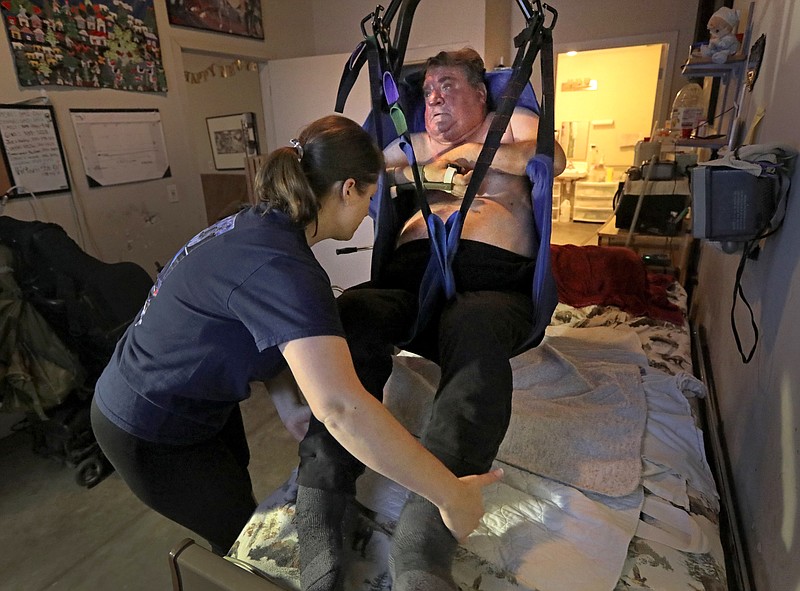ST. LOUIS (AP) - Funding cuts to in-home care for the disabled could force some Missouri residents into nursing homes, advocates said.
About $8 million of the $50 million the state Legislature initially cut last year has been restored, the St. Louis Post-Dispatch reported.
The cuts affected more than 7,800 disabled Missouri residents, said Republican State Rep. Scott Fitzpatrick of Shell Knob, who is the chairman of the House Budget Committee.
"We were cutting things drastically everywhere else before we came to these services," Fitzpatrick said, citing higher education costs as an example.
Advocates said the cuts have resulted in disabled residents receiving fewer hours with personal attendants who assist them with daily tasks they can't otherwise perform.
St. Louis resident Steve Foelsch is paralyzed from the chest down. The 53-year-old has had to max out his credit card so his attendants can stay longer because the state no longer covers that care.
"When you make a cut like this, I'm just dangerously close to going into a nursing home," Foelsch said.
Suzan Weller of Disability Resource Association said her group is scrambling to help people like Foelsch.
"At this point, there are several thousand individuals in the state that are needing more care but are having a difficult time due to those cuts," Weller said. "If you can't live on your own with the limited hours, what other options do you have?"
Advocates said a decrease in care can cause an increased risk of hospitalization.
"Just one hospitalization due to lack of care cancels out any savings," said officials with Paraquad, a St. Louis-based nonprofit organization that helps people with disabilities remain independent.

